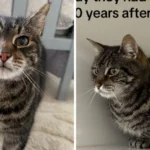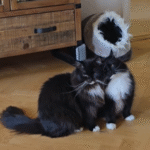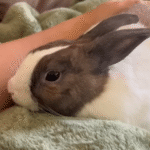Have you ever felt the intense, unwavering gaze of your cat from across the room? It’s as if they’re silently studying your every move, yet they don’t always come over for a cuddle or play session. For many cat lovers, this watchful behavior is both mysterious and a little bit heartwarming. Why do cats choose to observe us so intently rather than join in? Understanding the reasons behind this feline fascination can reveal so much about the special, often subtle, bond we share with our whiskered companions. Let’s unravel what it really means when a cat watches you more than they interact.
The Silent Language of Cats

Cats are masters of nonverbal communication. Unlike dogs, who often greet us with wagging tails and enthusiastic barks, cats tend to be more reserved, expressing themselves through subtle cues. When your cat watches you from afar, it’s a form of communication in itself. Their gaze might signal curiosity, affection, or even a gentle invitation for you to approach them instead. Just like a shy friend at a party, your cat might prefer watching from the sidelines before deciding to join in. This silent language is part of what makes living with cats so endlessly fascinating—they’re always speaking, even when they’re not making a sound.
Curiosity: A Cat’s Natural Instinct

Anyone who shares their home with a cat knows just how curious these creatures can be. Watching you is a way for your cat to keep a close eye on its environment and the people in it. Every move you make, from opening the fridge to sitting down with a book, can be a source of endless entertainment for your feline friend. This instinct to observe is hardwired into their DNA, a survival trait that kept their ancestors safe in the wild. So, when your cat seems more interested in watching than interacting, it could simply be their natural curiosity at work—they’re gathering information and learning about their world.
Trust Expressed Through Observation

It might surprise you, but a cat’s watchful gaze can be a powerful sign of trust. In the animal kingdom, turning your back or looking away can be risky, so when a cat chooses to keep you in their line of sight, it means they feel safe enough to let their guard down. Some cats show affection by keeping a quiet, constant presence rather than seeking direct contact. They’re saying, “I trust you enough to let you be yourself, and I want to be near you, even if it’s from a distance.” This trusting watchfulness is a subtle but meaningful way cats express their love.
Assessing the Mood: Reading Your Cues

Cats are incredibly perceptive creatures, often picking up on our moods and emotions with astonishing accuracy. When your cat watches you, they might be trying to figure out what you’re feeling or what you’ll do next. Are you about to feed them? Will you bring out their favorite toy? Or perhaps you’re upset, and they’re concerned. By observing your body language and routines, cats learn when it’s the right time to approach and when it’s better to watch and wait. They become experts at reading their humans, often more attuned to our habits than we are ourselves.
Personality and Past Experiences

Just like people, every cat has its own unique personality. Some are social butterflies, while others are introverted observers. A cat who watches more than interacts may simply have a more reserved temperament. Additionally, a cat’s history plays a huge role in their behavior. Cats that have experienced trauma or limited human interaction early in life might feel safer watching from a distance. Over time, patient and gentle handling can help these cats become more confident, but it’s important to respect their pace. Understanding your cat’s background and personality can help you connect with them on their own terms.
Boredom or Enrichment Needs

Sometimes, a cat’s habit of watching rather than interacting signals that they need more mental or physical stimulation. Cats are intelligent and easily bored if their environment doesn’t offer enough excitement. If your cat spends a lot of time observing you but seems restless or frustrated, consider introducing new toys, interactive games, or climbing spaces. Even simple changes like rearranging furniture or adding a window perch can provide fresh entertainment. A well-stimulated cat is more likely to engage and show their playful side, turning those watchful moments into shared adventures.
When to Be Concerned About Watching Behavior

While it’s normal for cats to observe quietly, a sudden increase in watchful behavior can sometimes indicate that something is wrong. If your usually interactive cat becomes distant and only watches you, it could be a sign of stress, illness, or discomfort. Changes in appetite, grooming habits, or litter box use should never be ignored. Trust your instincts—if your cat seems off, a visit to the vet can help rule out any underlying health issues. Being attentive to these subtle shifts ensures your cat stays happy and healthy, and strengthens your bond even further.

Growing up traveling and experiencing new cultures and wonders, I have had a passion for nature, adventuring, photography, and videography. I am currently working towards a BSc in Biodiversity and Ecology at Stellenbosch University, and I hope to specialise in Marine Sciences one day.
Please send any feedback to Feedback@animalsaroundtheglobe.com






